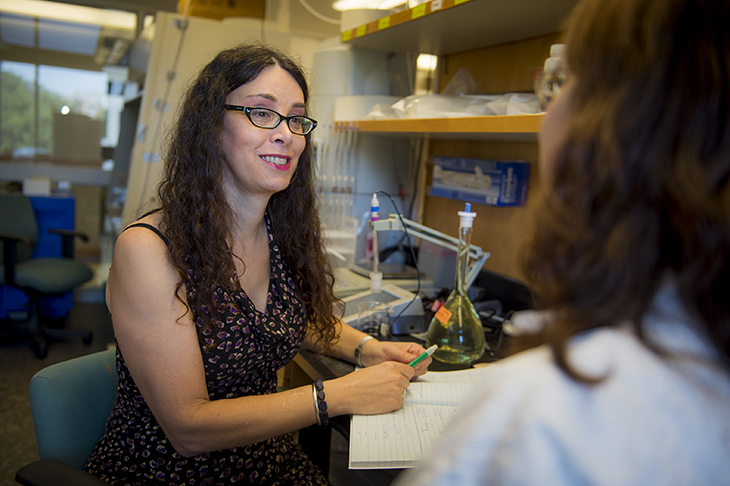She is tops in geochemistry

Karen Johannesson, a professor in the Department of Earth and Environmental Sciences, has been honored for her pioneering studies in geochemistry and rare earth elements, and her more recent work on arsenic, selenium and tungsten in groundwater. (Photo by Paula Burch-Celentano)
To the average person, names like Faure, Kastner, Hitchon, Brantley and Wedepohl probably don"t mean much. To Karen Johannesson, a geochemistry professor at Tulane University, the names represent the best in her field, a virtual who"s who of geochemists from around the world.
So when Johannesson received a letter from the International Association of Geochemistry that she would be joining the world"s most famous geochemists as an IAGC Fellow, she was honored beyond words.
“Most of the environmental emphasis at Tulane tends to be on the sinking coastline, rather than water quality, which is equally important to those drinking the water.” -- Karen Johannesson
“This is in recognition of your pioneering studies in the geochemistry and of the rare earth elements, especially in the hydrosphere, and also your more recent work on arsenic, selenium and tungsten in groundwater,” a letter from the organization read.
The honorary title of IAGC Fellow is bestowed annually to two scientists who have made significant contributions to geochemistry. This year, Johannesson and Jérôme Gaillardet of the Institut de Physique du Globe de Paris in France are the honorees.
“It"s nice,” Johannesson says. “It really surprised me, because they only give out two worldwide. It"s a lot of relatively well known people, so I don"t know if I belong there.”
Johannesson is modest, to say the least. She is considered an international authority in the behavior of rare earth elements in the hydrosphere and their potential impact on human health. She was one of the first to estimate rare earth element speciation in terrestrial waters and illustrated the importance of complexation and pH as controls on their behavior.
Johannesson"s more recent work has included the investigation of the behavior of the chemical compound oxyanion forming trace metals such as arsenic, selenium and tungsten in groundwater systems.
Johannesson and her students are currently investigating the presence of arsenic in southern Louisiana"s shallow groundwater. She says she plans to stick with the research for a long time to come.
“Most of the environmental emphasis at Tulane tends to be on the sinking coastline, rather than water quality, which is equally important to those drinking the water.”
